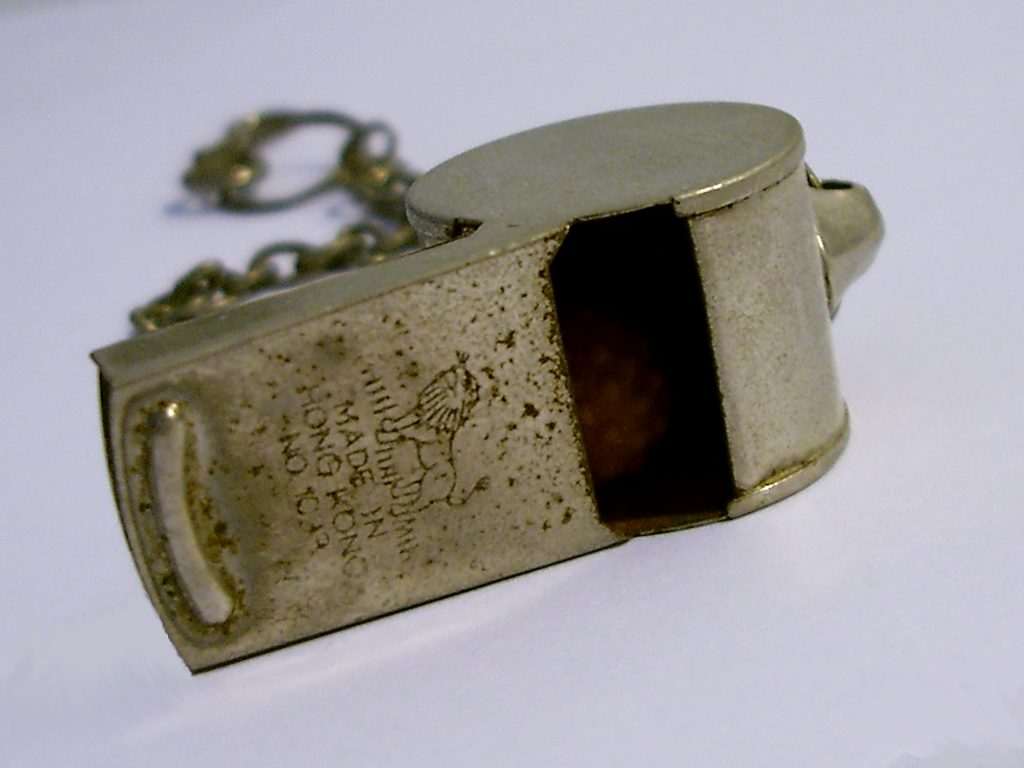 Inherent in most insurance contracts is an insurer’s duty to defend its insured against certain lawsuits. Part of this duty requires the insurer to pay for all legal costs and other fees related to a particular lawsuit. In a commercial general liability (“CGL”) context, business owners often rely on an insurer’s duty to defend in order to avoid paying significant legal fees for defending actions which would ultimately be covered by a CGL policy. As one might expect, whether this duty to defend exists depends on whether the loss alleged in a lawsuit is within the scope of the policy’s coverage. As a recent Louisiana Appellate Court illustrates, it is very important that insureds understand the language of their CGL policies so as to know when a duty to defend exists.
Inherent in most insurance contracts is an insurer’s duty to defend its insured against certain lawsuits. Part of this duty requires the insurer to pay for all legal costs and other fees related to a particular lawsuit. In a commercial general liability (“CGL”) context, business owners often rely on an insurer’s duty to defend in order to avoid paying significant legal fees for defending actions which would ultimately be covered by a CGL policy. As one might expect, whether this duty to defend exists depends on whether the loss alleged in a lawsuit is within the scope of the policy’s coverage. As a recent Louisiana Appellate Court illustrates, it is very important that insureds understand the language of their CGL policies so as to know when a duty to defend exists.
This case involved a dispute between engineering consultants Chalmers, Collins & Alwell, Inc. (“Chalmers”) and their insurer, Certain Underwriters at Lloyd’s (“Underwriters”), over whether Underwriters owed Chalmers a duty to defend against an underlying lawsuit. The underlying lawsuit involved a contract Chalmers had entered into with Haland Operating Services, LLC (“Haland”) to work on the drilling of a well. As outlined in the contract, the well at issue was being dug in tricky conditions which required the use of specialized equipment. While the well was being dug, problems arose. The drill rig that Chalmers recommended Haland use was not able to handle the difficult drilling conditions and resulted in damage to the equipment as well as Haland’s interests in the well. Haland then terminated the contract with Chalmers and hired another engineering firm to complete the well. In response, Chalmers pursued an action in arbitration against Haland. Haland then brought their own claims against Chalmers in arbitration. Chalmers then demanded that Underwriters defend it against Haland’s claims. However, Underwriters declined to defend, resulting in the instant dispute. The Lafayette Parish District Court found in favor of Underwriters, finding that Haland’s claims were not covered by Chalmers’ CGL policy, and so Underwriters had no duty to defend. Chalmers’ appealed.
Under Louisiana law, the obligation of an insurer to defend its insured is broader than its obligation to indemnify (obligation of the insurance company to pay for any injuries caused by its insured) its insured, which means that an insurer may have to defend its insured against lawsuits even though the policy would ultimately end up not covering the loss. Am. Home Assurance Co. v. Czarniecki, 230 So.2d 253, 259 (La. 1969). Determining whether an insured is owed a duty to defend requires looking at the allegations made by the third party. An insurer is obligated to defend a lawsuit against its insured unless the allegations are “unambiguously” excluded from coverage. However, even though some allegations by a third party may be clearly excluded from coverage under a policy, a duty to defend may still exist if “at least a single allegation” would not clearly be excluded. Duhon v. Nitrogen Pumping & Coiled Tubing Specialists, Inc., 611 So.2d 158, 161 (La. Ct. App. 1992). The factual allegations of a third party, rather than conclusory allegations, are what courts look at in making a determination whether an insurer must defend the insured.
 Louisiana Personal Injury Lawyer Blog
Louisiana Personal Injury Lawyer Blog


 The National Flood Insurance Program, or NFIP, was Congress’ approach to providing flood coverage at affordable rates. Generally, through the program homeowners can buy a Standard Flood Insurance Policy, or SFIP, from the Federal Emergency Management Agency, or from private insurers. According to the Court of Appeals for the Fifth Circuit, the SFIP outlines the conditions and requirements under which federal funds may be distributed to eligible policyholders.
The National Flood Insurance Program, or NFIP, was Congress’ approach to providing flood coverage at affordable rates. Generally, through the program homeowners can buy a Standard Flood Insurance Policy, or SFIP, from the Federal Emergency Management Agency, or from private insurers. According to the Court of Appeals for the Fifth Circuit, the SFIP outlines the conditions and requirements under which federal funds may be distributed to eligible policyholders.  Whistleblowers play a controversial role in the United States. Without Mark Felt, also known as Deep Throat, the world would have never known about the corruptions in the Nixon Administration and without Edward Snowden, the world would have never known the extent of the NSA’s surveillance on both U.S. citizens and foreign individuals. Congress recognized the importance of whistleblowers when it passed the False Claims Act. The False Claims Act allows individuals to bring lawsuits (called a qui tam action) on behalf of the United States when an individual or entity defrauds the United States Government. See
Whistleblowers play a controversial role in the United States. Without Mark Felt, also known as Deep Throat, the world would have never known about the corruptions in the Nixon Administration and without Edward Snowden, the world would have never known the extent of the NSA’s surveillance on both U.S. citizens and foreign individuals. Congress recognized the importance of whistleblowers when it passed the False Claims Act. The False Claims Act allows individuals to bring lawsuits (called a qui tam action) on behalf of the United States when an individual or entity defrauds the United States Government. See  Is it cruel and unusual punishment for a prison to not provide an extra pillow and mattress to an injured prisoner?
Is it cruel and unusual punishment for a prison to not provide an extra pillow and mattress to an injured prisoner? Contractual relationships can advance or dissolve as time passes, often turning sour when promises are not kept. One or both parties may attempt to break the relationship but the underlying contract is not so easily terminated. As a result, the parties may find themselves in a court battle over seemingly small details. In this recent Louisiana case before the United States Fifth Circuit Court of Appeal, the presumably costly break-up came down to one little word.
Contractual relationships can advance or dissolve as time passes, often turning sour when promises are not kept. One or both parties may attempt to break the relationship but the underlying contract is not so easily terminated. As a result, the parties may find themselves in a court battle over seemingly small details. In this recent Louisiana case before the United States Fifth Circuit Court of Appeal, the presumably costly break-up came down to one little word.  What if you are injured, hire a lawyer, and that lawyer fails to sufficiently work on your case? Outrage ensues and you may choose to fire that lawyer and hire a second. But is that first lawyer entitled to payment if you happen to win and receive an award in your case? In a recent Louisiana case, the Fifth Circuit Court of Appeals decided that the answer can be in the affirmative.
What if you are injured, hire a lawyer, and that lawyer fails to sufficiently work on your case? Outrage ensues and you may choose to fire that lawyer and hire a second. But is that first lawyer entitled to payment if you happen to win and receive an award in your case? In a recent Louisiana case, the Fifth Circuit Court of Appeals decided that the answer can be in the affirmative.  It is not uncommon for a victorious party in a lawsuit to seek attorneys’ fees upon their win. There is no guarantee however the judge will agree an award of attorneys’’ fees are warranted. In some cases filed in state court, the defendant can remove the case be heard in federal court. If the federal court lacks jurisdiction, however, the case will be sent back to state court. Whether the attorneys’ fees associated with the removal process can be recouped by the winning party is the subject of a recent lawsuit out of New Orleans.
It is not uncommon for a victorious party in a lawsuit to seek attorneys’ fees upon their win. There is no guarantee however the judge will agree an award of attorneys’’ fees are warranted. In some cases filed in state court, the defendant can remove the case be heard in federal court. If the federal court lacks jurisdiction, however, the case will be sent back to state court. Whether the attorneys’ fees associated with the removal process can be recouped by the winning party is the subject of a recent lawsuit out of New Orleans.  When a case goes to trial, there are many nuances that a lawyer might have to address, including a motion for a continuance or a dismissal. A continuance is the postponement of a hearing, trial or other scheduled court proceeding at the request of either party or by the judge. A dismissal occurs when the court ends a legal action before completing the trial process. This case out of the Parish of East Baton Rouge demonstrates Louisiana’s requirements for a continuance or a dismissal in the district courts.
When a case goes to trial, there are many nuances that a lawyer might have to address, including a motion for a continuance or a dismissal. A continuance is the postponement of a hearing, trial or other scheduled court proceeding at the request of either party or by the judge. A dismissal occurs when the court ends a legal action before completing the trial process. This case out of the Parish of East Baton Rouge demonstrates Louisiana’s requirements for a continuance or a dismissal in the district courts. Res Judicata, also known as claim preclusion, is a Latin term that literally means “for a matter judged.” In the legal system, res judicata is a doctrine that prohibits a second lawsuit from being filed for a matter that has already been judged or decided on the merits. Once parties to a lawsuit have had the opportunity to be heard by the court and the court rules on the claims asserted in the lawsuit, those parties are generally not ever again allowed to bring a lawsuit against the same parties for the same claims that arose from the same transaction or occurrence.
Res Judicata, also known as claim preclusion, is a Latin term that literally means “for a matter judged.” In the legal system, res judicata is a doctrine that prohibits a second lawsuit from being filed for a matter that has already been judged or decided on the merits. Once parties to a lawsuit have had the opportunity to be heard by the court and the court rules on the claims asserted in the lawsuit, those parties are generally not ever again allowed to bring a lawsuit against the same parties for the same claims that arose from the same transaction or occurrence.  Most of us probably owe money to someone. Whether it be for our home, a vehicle, a credit card or even just to a friend. A
Most of us probably owe money to someone. Whether it be for our home, a vehicle, a credit card or even just to a friend. A